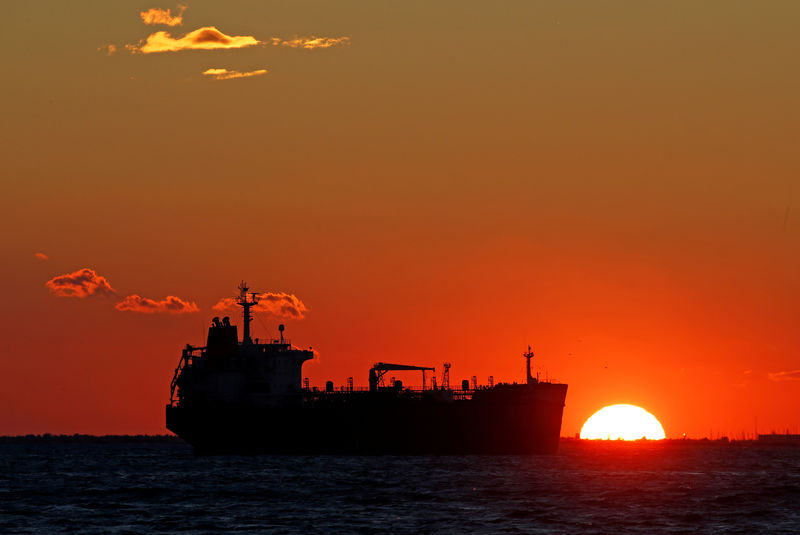(Bloomberg) -- The flood of U.S. oil exports stepped up a gear on Monday after the first fully laden supertanker sailed from an American port, alleviating a bottleneck that’s limited overseas shipments.
The Louisiana Offshore Oil Port, or LOOP, the only deep water port in the U.S. able to handle the industry’s biggest tankers, said in a statement it had successfully completed the first loading of a very large crude carrier. Shipping data compiled by Bloomberg show the tanker is the Saudi Arabian-owned Shaden, now heading to the Chinese port of Rizhao.
"There could not be a better time to offer this service as domestic production surpasses 10 million barrels per day in the ever-dynamic global crude oil market," said LOOP LLC President Tom Shaw.
LOOP has been a vital piece of U.S. energy infrastructure for more than 30 years, handling oil imports from across the world as well as gathering crude pumped from deepwater deposits in the Gulf of Mexico. Since it started receiving oil in 1981, it has offloaded 10,200 tankers.
The Shaden, which is owned by the National Shipping Co. of Saudi Arabia and carries the flag of the kingdom, was the first VLCC to load oil at the port rather than discharge it.
Pipelines and ports have become the biggest bottleneck in U.S. oil exports, with traders at times engineering logistically complex chains combining railways, trucks, pipelines, barges, and ship-to-ship transfers to get crude out of the country. As U.S. output surpasses the record high of 10 million barrels a day set in 1970, trading houses, pipeline owners and ports are investing in new infrastructure to ship more American crude overseas.
While U.S. crude has already been exported using supertankers, other ports are too shallow to allow full loadings, meaning smaller ships must shuttle multiple cargoes to the giant vessels as they wait to load offshore. LOOP, because it stands in deeper water about 18 miles off of the Louisiana coast, allows the industry’s largest tankers to load in one go.
Using very large crude carriers will significantly cut shipping costs. The new export capacity at LOOP will allow the supertankers to deliver foreign crude into the U.S. and depart laden, known as back-hauling in the industry’s jargon, rather than returning empty.
LOOP said the "shipper of record" was the trading arm of Royal Dutch Shell (LON:RDSa) Plc. However, data compiled by Bloomberg showed the Shaden was booked last month by Unipec, China’s biggest oil trader. a unit of the country’s refining giant China Petroleum & Chemical Corp., or Sinopec.
LOOP didn’t disclose what kind of oil the Shaden loaded, but traders said it was unlikely U.S. shale oil. It’s more likely to be a mix of crude pumped out of the U.S. Gulf of Mexico.
Washington lifted a 40-year ban on most oil exports in late 2015, reshaping the world’s energy map as U.S. crude was shipped to countries including Switzerland, China, Israel and even the United Arab Emirates. The de facto export ban, which only allowed a few exceptions, was imposed in the aftermath of a 1973 to 1974 oil embargo led by Saudi Arabia.
Even though the country remains a net oil importer, U.S. crude exports have surged to a record high of 2.1 million barrels since the ban was lifted. China and other Asian nations have become big buyers.
